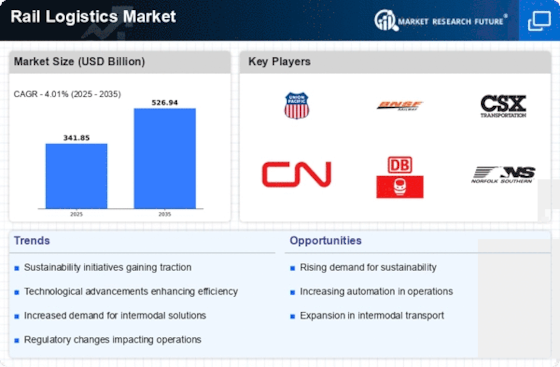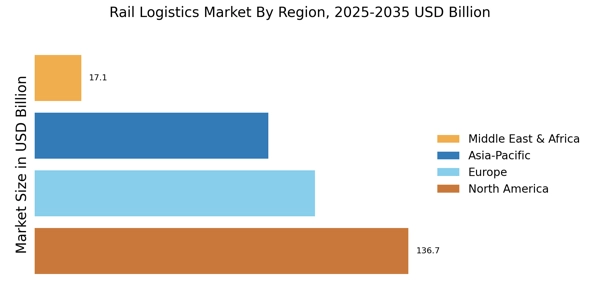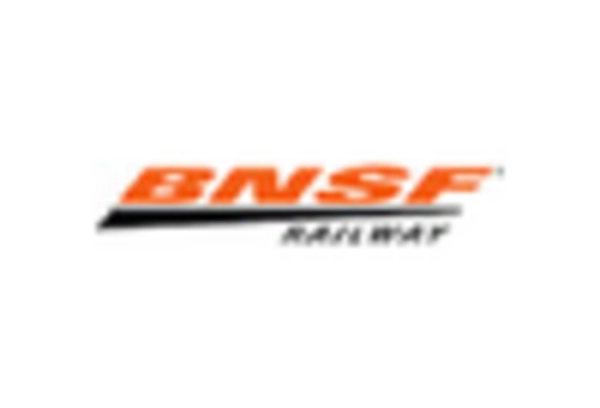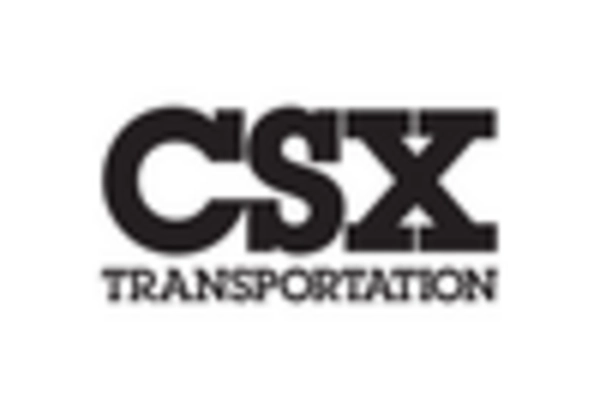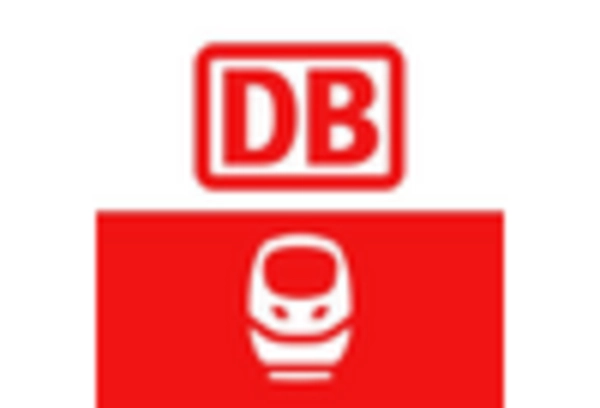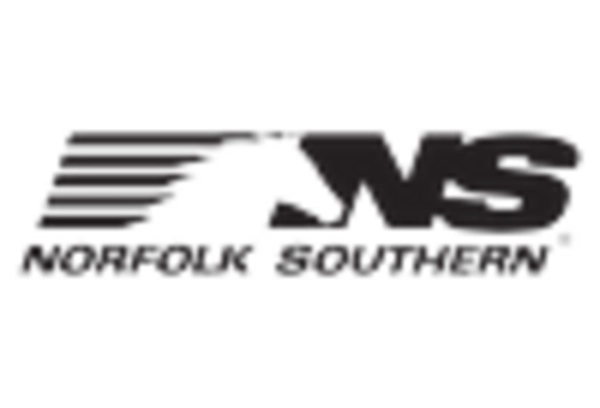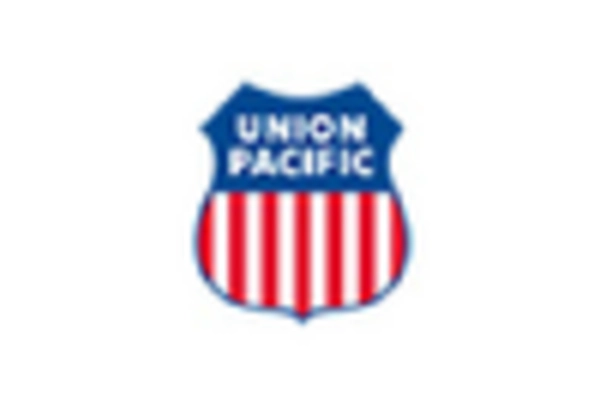Regulatory Support
Regulatory support plays a pivotal role in shaping the Rail Logistics Market. Governments are increasingly recognizing the importance of rail transport in achieving sustainability goals and reducing road congestion. Recent legislative measures aimed at promoting rail freight transport have emerged, including tax incentives and subsidies for rail operators. Such policies are designed to encourage investment in rail logistics, thereby enhancing the industry's competitiveness. For example, a recent report highlighted that countries implementing favorable regulations have seen a 20% increase in rail freight volumes. This regulatory environment not only fosters growth within the Rail Logistics Market but also aligns with broader environmental objectives, making rail transport a preferred choice for many logistics companies.
Infrastructure Development
The Rail Logistics Market is currently experiencing a surge in infrastructure development, which is crucial for enhancing operational efficiency. Investments in rail networks, including the construction of new lines and the modernization of existing ones, are expected to facilitate smoother freight movement. For instance, recent data indicates that rail infrastructure investments have increased by approximately 15% over the past year. This trend is likely to bolster the capacity of rail logistics, enabling companies to meet rising demand for freight services. Enhanced infrastructure not only reduces transit times but also minimizes operational costs, making rail logistics a more attractive option for businesses. As countries prioritize infrastructure projects, the Rail Logistics Market stands to benefit significantly, potentially leading to increased market share and profitability for key players.
Technological Advancements
Technological advancements are transforming the Rail Logistics Market, leading to improved efficiency and reliability. Innovations such as real-time tracking systems, automated loading and unloading processes, and predictive maintenance technologies are becoming increasingly prevalent. These technologies enable logistics companies to optimize their operations, reduce delays, and enhance customer satisfaction. For instance, the adoption of Internet of Things (IoT) solutions in rail logistics has been shown to decrease operational costs by up to 25%. As technology continues to evolve, the Rail Logistics Market is likely to witness further enhancements in service delivery, positioning it as a competitive alternative to other modes of transport.
Rising Demand for Intermodal Solutions
The rising demand for intermodal solutions is significantly influencing the Rail Logistics Market. As businesses seek to optimize their supply chains, the integration of rail transport with other modes, such as trucking and shipping, is becoming increasingly popular. This trend is driven by the need for cost-effective and efficient logistics solutions. Recent statistics indicate that intermodal freight transport has grown by approximately 30% over the last two years, underscoring its importance in the logistics landscape. The Rail Logistics Market is well-positioned to capitalize on this trend, as rail offers a reliable and environmentally friendly option for long-distance transportation. By embracing intermodal strategies, companies can enhance their service offerings and improve overall supply chain performance.
Environmental Sustainability Initiatives
Environmental sustainability initiatives are becoming a cornerstone of the Rail Logistics Market. With growing concerns about climate change and environmental degradation, rail transport is increasingly viewed as a greener alternative to road and air freight. Rail logistics emits significantly lower greenhouse gases per ton-mile compared to other transport modes, making it an attractive option for environmentally conscious businesses. Recent studies suggest that transitioning more freight to rail could reduce overall transportation emissions by up to 40%. As companies strive to meet sustainability targets, the Rail Logistics Market is likely to see a surge in demand for rail services, further solidifying its role in sustainable logistics solutions.


